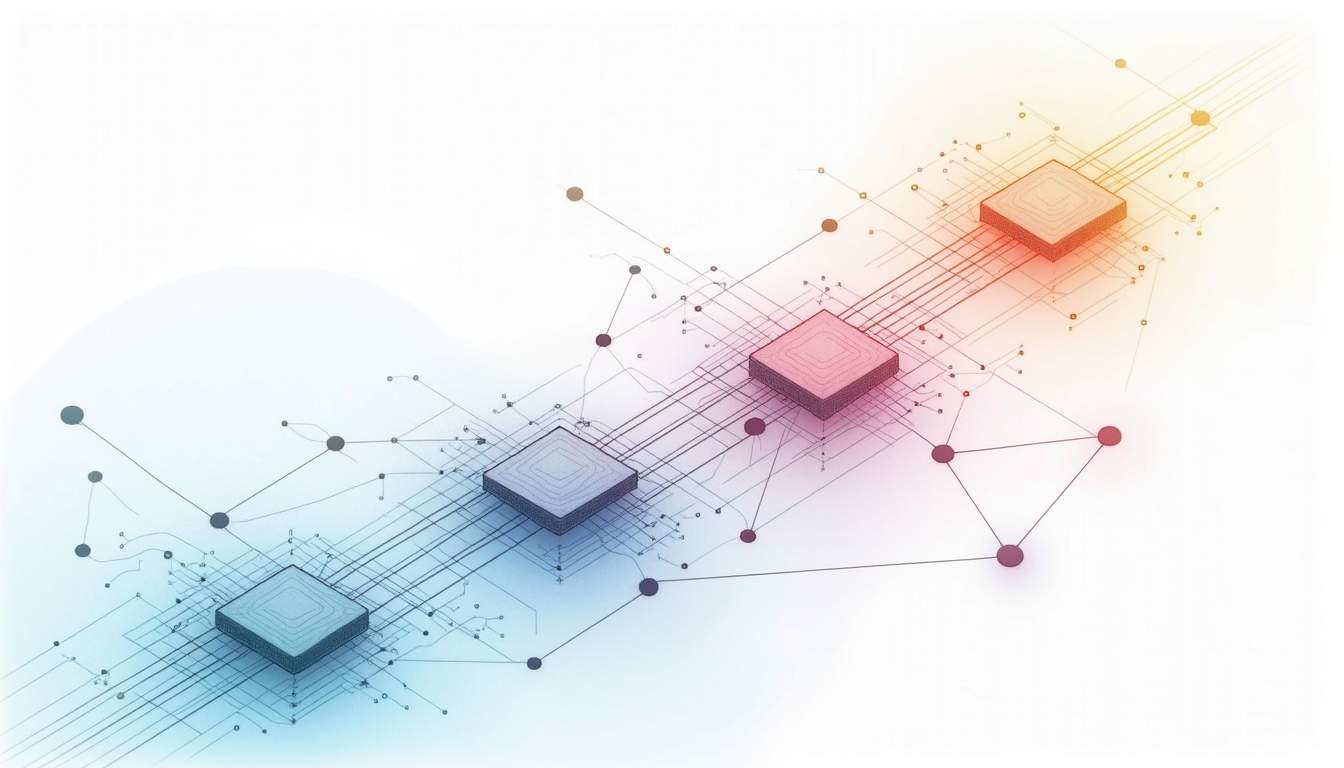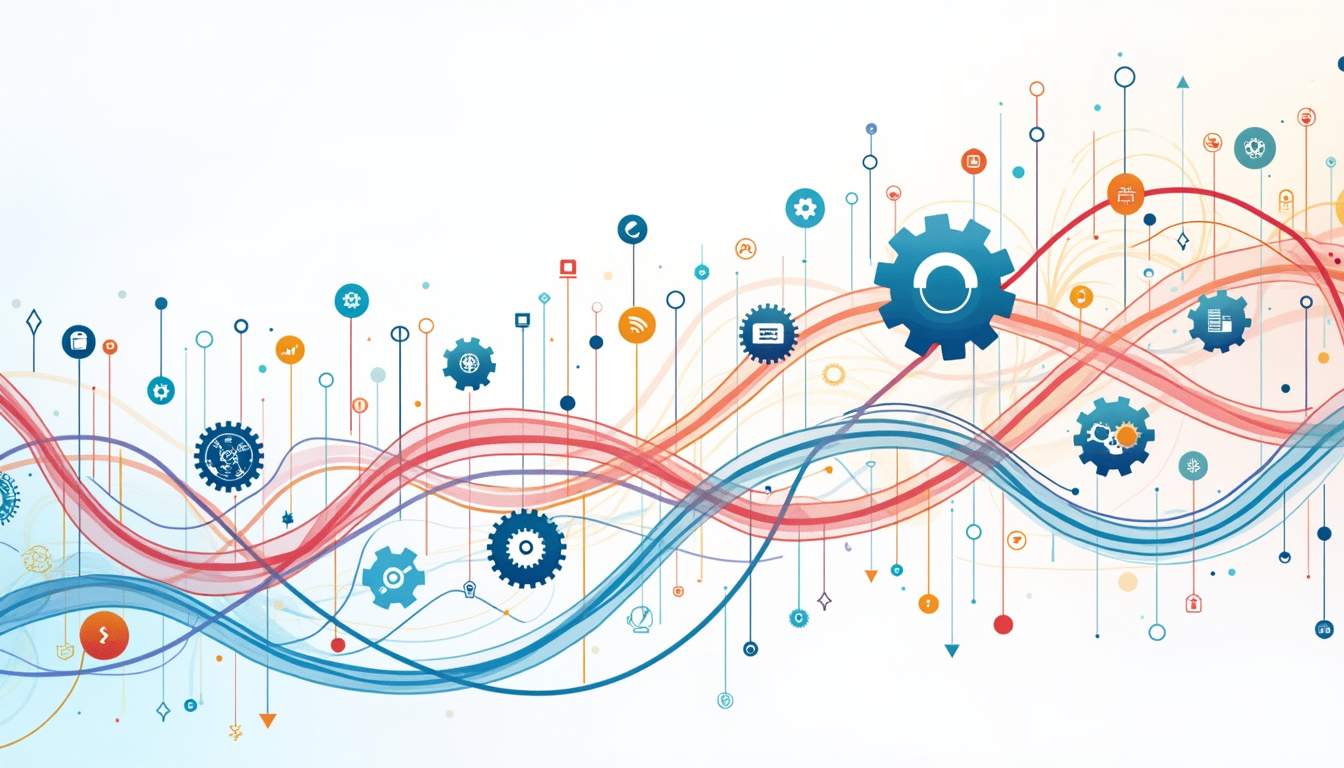The Future of DAO Governance in a Quantum Computing World.
David Liu

As technology continues to evolve at an astonishing pace, the convergence of decentralized governance structures and advanced computational paradigms is becoming increasingly relevant. Decentralized Autonomous Organizations (DAOs) and quantum computing are two such innovations that could significantly reshape our digital landscape. This article explores the fundamentals of DAO governance and examines the potential impacts of quantum computing on these entities, ultimately aiming to identify the challenges and opportunities that lie ahead.
Understanding DAO Governance
DAOs represent a cutting-edge approach to organizational management, relying on smart contracts and blockchain technology to facilitate decision-making and operational processes. They allow individuals to collaborate in a decentralized manner, fostering transparency and trust among participants without the need for a centralized authority.
The Concept of Decentralized Autonomous Organizations
At their core, DAOs operate on the principle of decentralization. This means that all members have equal rights to partake in governance, typically measured through voting mechanisms, token ownership, or other collaborative frameworks. The absence of a centralized leader allows for a more democratic process where the community forms a collective voice.
DAOs leverage smart contracts to enforce rules and execute decisions autonomously. Once these contracts are deployed on the blockchain, they run as programmed, making them immune to human errors and biases. This autonomy is essential for maintaining transparency and incentivizing members to vote according to their interests. Furthermore, the immutable nature of blockchain technology ensures that once a decision is made, it cannot be altered or tampered with, thereby solidifying trust among participants.
Key Principles of DAO Governance
There are several key principles that underpin the governance of DAOs:
- Decentralization: Each member has an equal say in the governance process, minimizing the risk of authoritarian control.
- Transparency: Every transaction and decision made within the DAO is recorded on the blockchain, providing an open ledger for scrutiny.
- Autonomy: DAOs operate independently according to predefined rules encapsulated in smart contracts.
- Incentives: Members are typically incentivized through tokenomics, encouraging their participation in governance and decision-making.
In addition to these principles, DAOs often employ mechanisms to promote active participation among members. For instance, some DAOs implement tiered voting systems where members with more tokens have a greater influence on decisions, while others might use quadratic voting to balance the power dynamics and ensure that minority voices are heard. This diversity in governance structures allows DAOs to adapt to the unique needs of their communities, fostering innovation and engagement.
Moreover, the rise of DAOs has sparked discussions about regulatory frameworks and legal recognition. As these organizations operate in a largely unregulated space, there is an ongoing debate about how they fit within existing legal systems. Some jurisdictions are beginning to explore ways to accommodate DAOs, recognizing their potential to reshape traditional business models and enhance participatory governance in various sectors. This evolving landscape presents both challenges and opportunities for DAOs as they seek to establish themselves as legitimate entities in the global economy.
Quantum Computing: A Brief Overview
As we delve deeper into the intersection of DAOs and quantum computing, it is vital to understand what quantum computing entails. This burgeoning field of study involves utilizing the principles of quantum mechanics to revolutionize data processing and information sharing. The implications of this technology extend far beyond mere computational speed; they touch on the very fabric of how we understand and interact with information in our digital age.

The Fundamentals of Quantum Computing
Unlike classical computers that use bits to represent information in binary form (0s and 1s), quantum computers use quantum bits or qubits. A qubit can exist in a state of 0, 1, or both simultaneously, a phenomenon known as superposition. This property allows quantum computers to process complex problems significantly faster than classical counterparts. In practical terms, this means that a quantum computer could solve problems that would take classical computers thousands of years to crack, such as complex simulations in molecular biology or materials science.
Moreover, entanglement—a quantum property whereby particles become interconnected regardless of distance—enables quantum systems to perform concurrent computations. This capability has profound implications for tasks such as optimization problems, cryptographic security, and more efficient algorithms. For instance, in the realm of cryptography, quantum computing could render traditional encryption methods obsolete, prompting a race to develop quantum-resistant algorithms that can withstand such powerful computational capabilities.
Quantum Computing vs. Classical Computing
The primary distinction between quantum and classical computing lies in their respective computational capabilities. Classical computers operate sequentially, executing one task at a time, whereas quantum computers leverage superposition and entanglement to explore multiple solutions simultaneously, greatly enhancing efficiency. This parallelism opens up new avenues for tackling problems that are currently intractable, such as complex logistical challenges in supply chain management or real-time data analysis in financial markets.
Furthermore, quantum algorithms, such as Shor's algorithm for factoring large numbers or Grover's algorithm for searching unsorted databases, highlight potential performance breakthroughs that could disrupt industries reliant on classical computing paradigms. The implications of these advancements are vast, potentially transforming sectors like pharmaceuticals, where drug discovery could be expedited, or artificial intelligence, where machine learning models could become exponentially more powerful. As research progresses, the integration of quantum computing into existing infrastructures raises important questions about scalability, accessibility, and the ethical considerations surrounding its use in various applications.
The Intersection of DAO Governance and Quantum Computing
As DAOs continue to evolve, the role of quantum computing in enhancing their governance structures becomes increasingly critical. Understanding this intersection can help stakeholders prepare for a future where quantum computing plays a substantial role in DAOs.

Potential Impacts of Quantum Computing on DAOs
Quantum computing may influence various aspects of DAOs, particularly concerning security, data management, and efficiency of decision-making processes. The computational power of quantum systems could streamline voting mechanisms and reduce transaction verification times.
Additionally, DAOs could utilize quantum entanglement for instant communication between decentralized nodes, enhancing collaboration and responsiveness. The prospect of processing large amounts of transaction data rapidly could lead to more informed governance decisions, ultimately driving community engagement and participation.
Quantum Computing's Role in Enhancing DAO Governance
As quantum computing matures, its applications for DAOs could include advanced predictive analytics that analyze community sentiment and voting behaviors. By employing quantum algorithms, DAOs can optimize proposals based on past activities, preferences, and trends.
Moreover, the integration of quantum cryptography may bolster the security of DAOs, providing robust mechanisms against potential threats posed by malicious actors. This dual approach of enhanced decision-making capabilities and fortified security ensures that DAOs can operate effectively in increasingly complex environments.
Challenges and Opportunities in Quantum DAO Governance
While the potential benefits of quantum computing for DAOs are significant, it is essential to remain cognizant of the challenges that may arise as these technologies converge.
Addressing Quantum Threats to DAO Security
One of the foremost concerns is that quantum computing poses threats to current cryptography methods. The power of quantum computers to break widely used encryption algorithms could expose sensitive information and destabilize DAOs if they do not adapt quickly. DAOs must prioritize the incorporation of quantum-resilient security protocols to safeguard their data.
Furthermore, with reduced reliance on traditional security measures, there might be a need to re-evaluate governance decision-making processes to adapt to the new landscape in which quantum threats could disrupt operations.
Leveraging Quantum Advancements for DAO Efficiency
Conversely, addressing these challenges can lead to exciting opportunities for innovation. DAOs can capitalize on quantum advancements to enhance the efficiency of governance mechanisms. By utilizing quantum computing, organizations can streamline their processes, enabling faster decision-making and improved scalability.
Moreover, the intersection of quantum computing and DAOs can foster novel approaches to community engagement. By harnessing the capabilities of quantum technology, DAOs can create more inclusive platforms for stakeholder involvement, consequently growing their member base and enhancing participation.
The Road Ahead: Predictions for Quantum DAO Governance
Looking towards the future, the potential evolution of quantum DAO governance raises intriguing possibilities. As both fields develop, it is vital for stakeholders to align their strategies to fully embrace this future.

Future Scenarios for Quantum-Enhanced DAOs
One potential scenario includes the emergence of hybrid DAOs, which integrate both classical and quantum computing technologies. These entities would optimize governance processes while ensuring robust security measures are in place to protect against quantum-related vulnerabilities.
Another possibility lies in the creation of self-regulating DAOs that can dynamically adjust to changes in technological landscapes. By utilizing real-time data and predictive analytics powered by quantum computing, these organizations could anticipate emerging trends and proactively adapt their governance structures.
Preparing for the Quantum DAO Governance Era
In preparation for this evolving landscape, stakeholders must proactively engage with quantum technologies and invest in research to better understand their implications. Education and skill-building around quantum computing and its applications in governance will be critical to navigating this new era.
Moreover, collaboration among technologists, policymakers, and DAO communities will play a pivotal role in shaping the future of quantum-enhanced governance. By fostering open dialogue and knowledge sharing, the transition to quantum DAO governance can be more seamless and successful.
In conclusion, the combination of DAO governance and quantum computing heralds a transformative future for organizational structures. While challenges exist, the opportunities for enhanced governance, security, and community engagement are immense. Embracing these advancements prepares us for a more decentralized, secure, and effective collaborative environment.
.svg)






